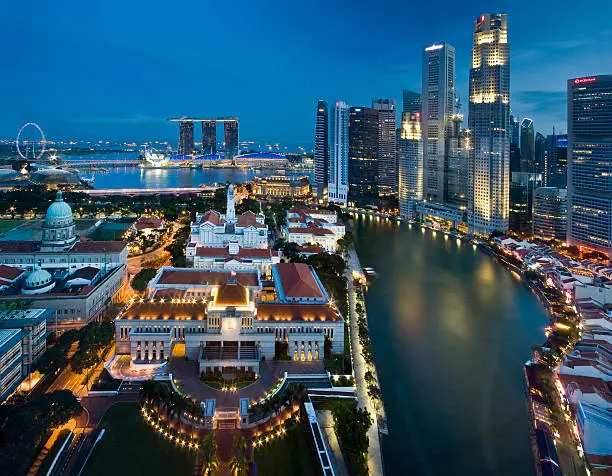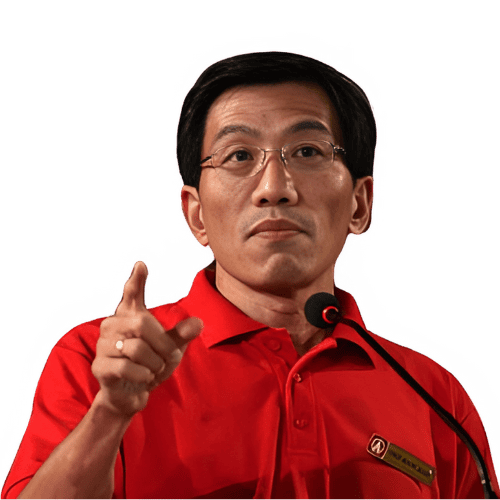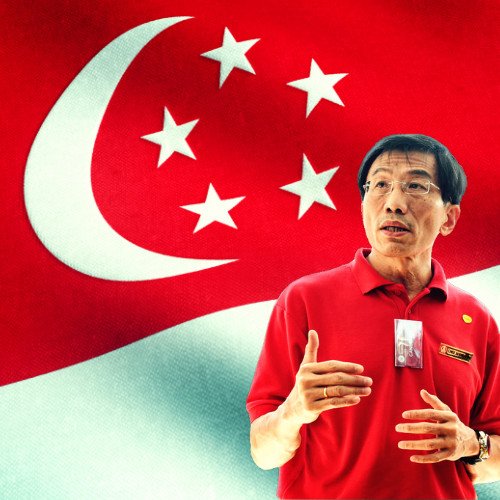The Art of Political Imitation: When Ideas Become Currency

Reference from 
Historical Context: Political Back-and-Forth in Singapore
TL;DR: This exploration reflects on Singapore’s political landscape, emphasizing the shifting dynamics between the PAP and SDP since 2011. It highlights the need for meaningful dialogue and vigilance against entrenched perceptions while encouraging citizens to engage actively in political discourse.
Reflecting upon the political landscape in Singapore, I’ve felt inspired to delve into the intricate dialogues that shape our society. The relationship between the People’s Action Party (PAP) and the Singapore Democratic Party (SDP) has historically swayed the course of our governance decisions. With each election since 2011 marking a key pivot point, it has become essential to examine how claims and counterclaims create a tapestry of public trust and transparency in our political engagement.
Let’s take a step back to the year 2016, during the fervent Bukit Batok by-election. The political rhetoric flew thick and fast, with Deputy Prime Minister Sarman denouncing the SDP’s propositions as “populist policies.” The items at stake? Universal health care and unemployment insurance—topics that resonate deeply with the collective hopes of our society. I can’t help but admire how these discussions cast a spotlight on the underlying tensions. It’s in moments like this that I genuinely understand how political narratives are sculpted to fit prevailing sentiments, sometimes stifling the true needs of the citizens, and at other times birthing more robust dialogues that enforce critical policy changes.
Take 2015 for instance, when the SDP introduced the “Restart” initiative, an ambitious plan designed to provide unemployment insurance to retrenched Singaporeans. Zoom forward to 2022, I recall the moment when PM Lawrence Wong presented a scheme during his National Day rally that closely echoed the SDP’s concept. It’s encouraging to see ideas gain traction, but it’s important to scrutinize the practicality of these initiatives. The SDP’s proposal suggested an average payout reaching up to 50% of the last-drawn salary for a significant 18-month period or until reemployment—the stakes were high; it was about securing lives in middle-class households. The PAP’s follow-up scheme, in contrast, granted a mere SGD 1,000 a month for up to six months. Such discrepancies raise pivotal questions about the efficacy and responsiveness of our political strategies toward the real hardships faced by families juggling work, bills, and dependents.
As I explore this cycle of political sentiment—where proposals from the SDP seem to echo back into the halls of the PAP—I cannot help but share my thoughts about the discrepancies I’ve noticed over the years. A key moment stood out to me during the 2011 General Elections when Dr. Vivint Balakrishnan labeled the SDP as “the most middle-class unfriendly opposition party” for advocating a raise in taxes on high earners. Fast forward to 2015, the PAP did just that, clamping down on its previous stance and implementing those very measures. How curious this political dance can be! It speaks volumes about the necessity of constructive opposition, for it fosters a space where real, impactful policy can emerge.
Thinking back to my own journey, I remember when I first ventured into publishing with “Dare to Change” in 1994. In that piece, I spoke passionately about critical issues plaguing our society—low productivity, inequitable CPF policies, and exorbitant healthcare costs. At the time, my words made waves, inviting heated backlash from established figures, including PM Lee Hsien Loong, who dismissed them as mere echoes of failed Western ideologies. Yet, it’s heartening to see shifts in perspective over the decades—the very concerns I raised are now acknowledged by those in power, even occasionally receiving nods of recognition from today’s leaders.
It’s essential that we do not oppose for the sake of opposition; my commitment lies in cultivating a dialogue that prioritizes substantial ideas over political bravura. Yet, it is disheartening watching the PAP consistently commend itself while subtly depicting opposition parties as insignificant. I feel that it’s not merely a battle against the party but rather a concerted effort against the entrenched perceptions that have been ingrained in the minds of Singaporeans through decades of governance. Political narratives, historically shaped through traditional media, often cast the PAP as the hero while vilifying the opposition. This imbalance deserves scrutiny.
Today, social media platforms from TikTok to Instagram have shifted the narrative dynamic, empowering voices that once were silenced. It’s exhilarating to engage directly with my fellow citizens and help illuminate voices previously overlooked. My call to younger Singaporeans is to remain vigilant. Question that overabundance of praise directed toward the PAP and recognize the significant contributions capable of emerging from differing political viewpoints.
As we navigate these conversations, I am excited to announce that I will be selling my books again this coming Sunday, September 8, from 2 PM to 4 PM at Ang Mo Kio Hub. This isn’t just about book sales—it’s about engaging with the community, learning from our shared experiences, and addressing the heartbeat of our nation. The PAP seems equally eager to use social media to propagate its narratives, often responding with demands for solutions every time criticism arises. My hope is to encourage fellow Singaporeans to stand up for the truth and advocate for meaningful accountability among our leaders.
Ultimately, let’s come together to inspire our political leaders to uphold integrity and transparency. Our voice matters, and with our combined efforts, we can reshape the political discourse for the better. After all, isn’t the essence of democracy rooted in discourse, trust, and genuine representation?

